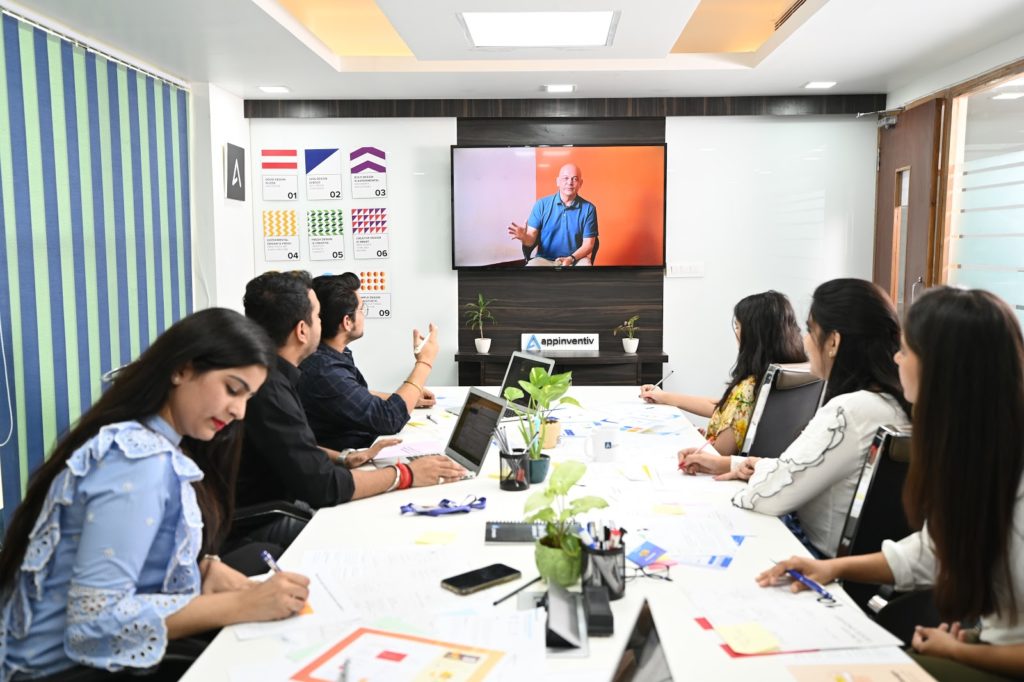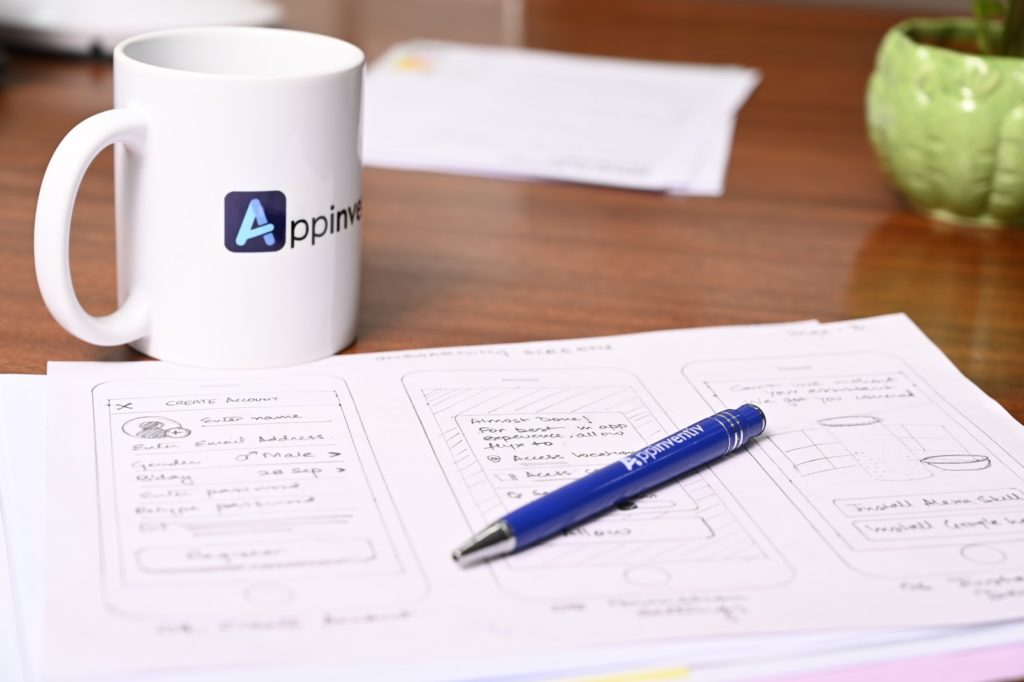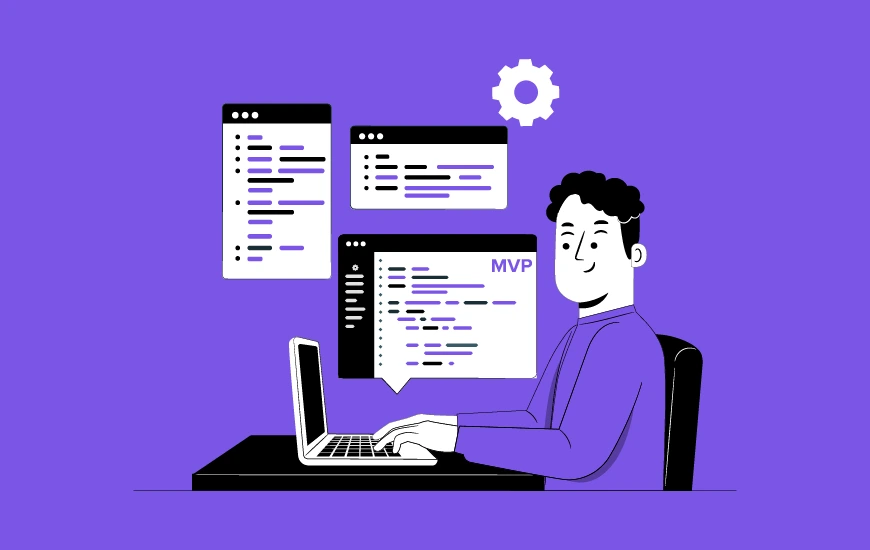- What Really is a Mobile App Brief?
- Why Is Writing an App Brief So Important?
- 1. Written Communication > Oral Communication
- 2. A Structured Roadmap
- 3. No scope for Conflict
- 4. The End Goal
- 5. Feedback
- How Do You Write an App Brief for a Mobile App, Step by Step?
- 1. Begin by telling about Yourself
- 2. Purpose of your App
- 3. Acknowledge your Competition
- 4. Standing Point
- 5. App Functionality
- 6. User Navigation
- 7. Content Creation
- 8. Choice of Platform
- 9. Visual Appeal
- 10. Budget and Timeline
- 11. Potential errors and crisis scenario
- Mistakes to Avoid while Writing a Great Brief for Mobile App Project
- Conclusion
We are thrilled that you came up with a breakthrough idea for a mobile application.
So, what’s next?
Building the app and diving right into the market.
Well, it sure is.
But every great project commences with a brief.
It is a prerequisite and plays a fundamental role in deciding how your project will turn out in the end. For a mobile app development project, writing a brief is a good starting point.
So, if you’re still confused about drafting a brief because it seems like a task, we are here to tell you why you shouldn’t skip this step.
And if you are already set on writing one, we bring to you a step by step guide on how to draft a perfect mobile app brief.
For any collaboration or partnership to succeed, communication is the key. So, before you rush and sign off any contract, make sure you have laid down a comprehensive and lucid brief that clearly defines your goals and visions.
Before you partner with any app development company for startup, you should be sure about what exactly you expect from the collaboration. And you must be able to convey the same to your technology partner.
What Really is a Mobile App Brief?
You may have a visual understanding of your idea, but a brief requires expressing your idea in a written format. As the name clearly suggests, a mobile app brief captures every pertinent detail about your development project in a concise manner.
The intent behind a brief is to gather every little detail crucial to the project and convey it to the prospective technology partner. A mobile app brief is an open statement of ambition which provides clarity regarding the purpose of the project.
Regardless of the fact that it is a top app development company or they have worked on multiple projects like yours, every partner needs to know about your brand and vision to successfully handle the project. Mobile app requirement brief sets a great foundation and does the job right.
Why Is Writing an App Brief So Important?
A mobile app brief is a thought-starter, it acts as a springboard to refine the idea and materialize it into a robust product. When you invest the right amount of time and effort to create a comprehensive mobile app requirement brief, it lays the right foundation which meets the needs of your target audience, solves problems and helps accomplish the set objectives.
1. Written Communication > Oral Communication

You would be more at ease discussing your project in person but written communication often supersedes oral and the reason for that is pretty obvious. If you do not want to forget any key concepts that are crucial to your project, we suggest you formulate a comprehensive application development brief.
It not only ensures that you don’t miss out on any specifications but your technology partner also gets enough time to analyze your ideas and requirements.
2. A Structured Roadmap

A mobile app brief lists all your requirements at every step of the development process and acts as a roadmap for the mobile app developers. It helps them choose the right technology and tools for your project.
3. No scope for Conflict
An app development brief provides clarity of purpose and is proof of what needs to be done. It eliminates ambiguity and leaves no scope for conflict at later stages of development.
4. The End Goal
The main goal behind drafting a mobile app brief is to ensure that you get the desired product. A mobile app brief template ensures you and your tech partner are on the same page at every step of your development journey.
5. Feedback

A good application development brief not only generates response but some critical feedback which makes room for improvement.
How Do You Write an App Brief for a Mobile App, Step by Step?

A good brief is like a snapshot of your project idea. It captures every little detail and allows the development company to understand your project. Since we do not want you to miss out on anything, we have outlined all the necessary steps on how to prepare an excellent brief for app development.
1. Begin by telling about Yourself
Start the brief by providing details about your company and your company’s website. Give an overview regarding your inception, your goals and vision, and provide an email.
2. Purpose of your App
Explain your technology partner the problem that you are trying to solve. To develop the best possible app for you, an app development company needs to know what you are trying to achieve. You should be able to clearly communicate the what(it solves), why and how of it all.
When the idea is clearly expressed through mobile app documentation it helps the tech partner accomplish goals with much ease.
To build an app that provides the users a delightful experience and excites them to take action, you must convey every little piece of information regarding your target audience.
Describe who your app caters to. Understanding the user group and the target audience and paying attention to their needs and interests helps in developing a successful app.
Try to sum up your idea in one sentence, for instance, I want to build an app for people to buy and sell pre-owned luxury fashion.
3. Acknowledge your Competition
It is crucial to assess the market and provide information regarding your competitors. You should provide references of the apps that you like and convey how you want your app to stand out from others currently in the market.
List the features that you find unique and explain what you like about them.
4. Standing Point
In an app development brief, you should specify where you stand in terms of the product- Have you just outlined the app idea or are you ready with the wireframes and prototypes.
Your technology partner needs to know the stage of development your product is presently in, in order to shape it into a cutting-edge app.
5. App Functionality

A lucid app brief acts as a technical design document for mobile application. App functionality is a deciding factor on how your product will turn out so it is ideal to focus on the core functionality. Explain how the features of your app end up solving user problems. To rapidly build an MVP, include only the must-have features.
Discuss the scope for custom features with your technology partner and finalize whether you want your app to be available in offline mode.
Convey to the development company if you have any product pricing strategies in mind. Laying out a monetization strategy in the very start helps the developers make a separate set of functionalities.
6. User Navigation

Outlining how the user navigates through the app is a key component and documenting it gives a good insight. A good mobile app design brief lists the first few steps like user registration and onboarding and describes how the user will navigate from thereon.
Defining user stories solves a lot of problems and validates the features present in the app. How and why a user will end up at a screen and the chronology as to where the user will be directed from thereon should be defined at the very start.
7. Content Creation
Content creation is another crucial factor to consider while writing mobile app development brief. You must ensure what all content will be available on your app and the source of the content. It could be audio, video, images, documents, etc.
You need to decide whether the content will be generated in-house or the content curated by the users will be circulated.
8. Choice of Platform
You need not delve too deep into the technicalities of app development but deciding which platform works for you and your target audience is essential. The choice between Android or iOS is a critical one but for each platform, an app development company has a different development approach.
Android app makers need a requirements document and in a similar fashion, drafting an iOS app requirements document puts forth all the expectations in writing. It helps in avoiding any ambiguity.
Deciding whether to go for native or cross-platform app development is another factor to consider and your technology partner can assist you in making the optimal choice.
For an app to have high usability and performance rate, native is the ideal choice whereas when you rapidly want to launch your product in the market with basic functionality cross-platform app development is the best choice.
Also, specifying any mobile app technical requirements that you are privy to is a must.
9. Visual Appeal

Deciding the look and feel of the app and how the user will engage with it is equally important. Outlining the design process and specifying how you want your ideas to come to reality is fundamental not only for the designer but also for the success of your app.
Draft a brief that lists out all the functional requirements of the mobile application and takes into account the overall user experience. Provide references for apps that resonate with your vision while preparing a mobile app brief template.
The visual appeal of an app ticks many boxes for the users, so it is essential that all the sketches, wireframes and UI is designed keeping in mind the target audience.
10. Budget and Timeline
An estimate of the budget and assigning a timeline to the project is the last thing you need to include in the brief. When you break down the cost of developing a mobile app, you will find that the app development cost is majorly affected by the scope of work.
Therefore, before building a full-fledged product, your emphasis should be to find the right product-market fit. It is ideal to start with an MVP and not create a complex product.
Outlining the funds that you can allocate for the project is a prerequisite along with specifying a timeframe to your development partner. You must ensure that they are well aware if there is any specific deadline or any particular event where you plan to launch the app.
You should put aside enough time to test the app with real users before launch.
11. Potential errors and crisis scenario
It’s important to consider the potential bottlenecks in your app development project. For instance, you should consider the steps you will take if you run out of resources before the mobile app is finished or what you will do if the API becomes unavailable. Write a list of problems that might arise during app development and consult your team regarding the steps to be taken during such situations. This can cap off the document and serve as a detailed reference for developers during the production cycle.
Pro Tip: Be overtly honest when drafting a brief for your mobile application. It has been observed that when people write creative briefs, they are very straightforward about what exactly they are trying to achieve.
That’s primarily one of the reasons why it helps in accomplishing the set objectives. So have due clarity about what exactly you are trying to accomplish and communicate it clearly to your mobile application development company through your mobile app development brief.
Mistakes to Avoid while Writing a Great Brief for Mobile App Project
Here are a few mistakes to avoid while writing a great brief for mobile app development project. These mistakes, if not taken care of, can hinder the progress of your production cycle and cause severe budgetary and timeline issues.
1. Lack of Team Consulting: One person should not be responsible for writing a great mobile brief. As a team, everyone – be it designers, coders, and UX experts – should pitch in their ideas while writing project briefs. This will lead to early elimination of difficult/irrational development requests and much smoother production.
2. Lack of Project Lead/Client Feedback: Even though developers are more in tune with current mobile trends than their clients, the latter should still be included in writing brief for mobile app development. Not taking feedback from clients and prospects to create a project brief will most likely result in poor overall reception. So, it’s better to take their feedback and include their suggestions, if important.
3. Poor brief formatting: Proofreading, proper editing and formatting play a vital role to create a project brief that’s perfect. You can use tools to cross check the formatting and readability of your brief before presenting it. This will ensure that your brand’s professionalism and consistency remains high, as spelling or formatting mistakes can leave bad impressions quite quickly.
Conclusion
A brief involves a lot of thought but it is important to understand that it is not merely a tool to communicate. When you draft a logical product brief, you will encounter certain problem areas that you may have missed or were completely unknown to.
Drafting a brief provides you with the necessary perspective around things that are crucial while strategically planning a mobile app development process, and goes on to show how it is the first defining step towards your end goal.
A brief is a two-way street and you must talk to a reputed mobile app development company on matters you are not sure about. You should provide enough room for the developers to put forth their ideas and let them guide you towards the best mobile app development services.
In case you are a startup, contact a reputed startup app development company and take their help. App developers for startups will suggest their ideas and guide you through the entire process.



How Much Does It Cost to Build an MVP: Costs Explained
It is best to test the waters before taking a dip. The minimum viable product helps you do exactly that. It enables you to develop a product with basic features, test it on the ground, make changes according to the market analysis, and finally launch the final product. Even better is to follow the agile…

Pre-Seed Funding for Startups - A Detailed Guide for Founders
Equipment needs, office rentals, and employee hiring are all necessities for new businesses or startups. They'll need outside funding to complete these tasks in almost all instances. This is where seed funding and pre-seed funding for startups enter the picture. In other words, one thing is necessary for the start-up process: money or capital. Without…










